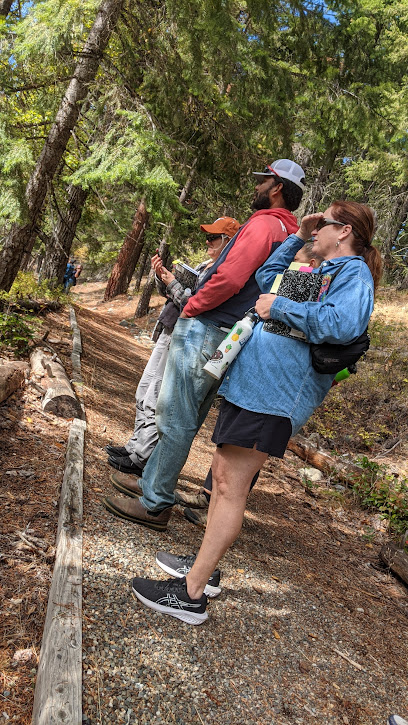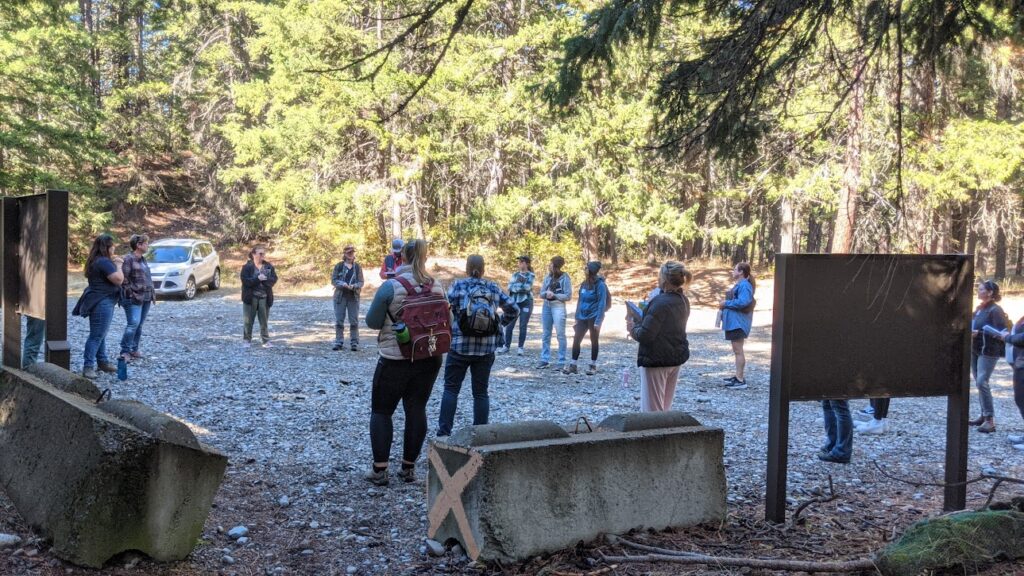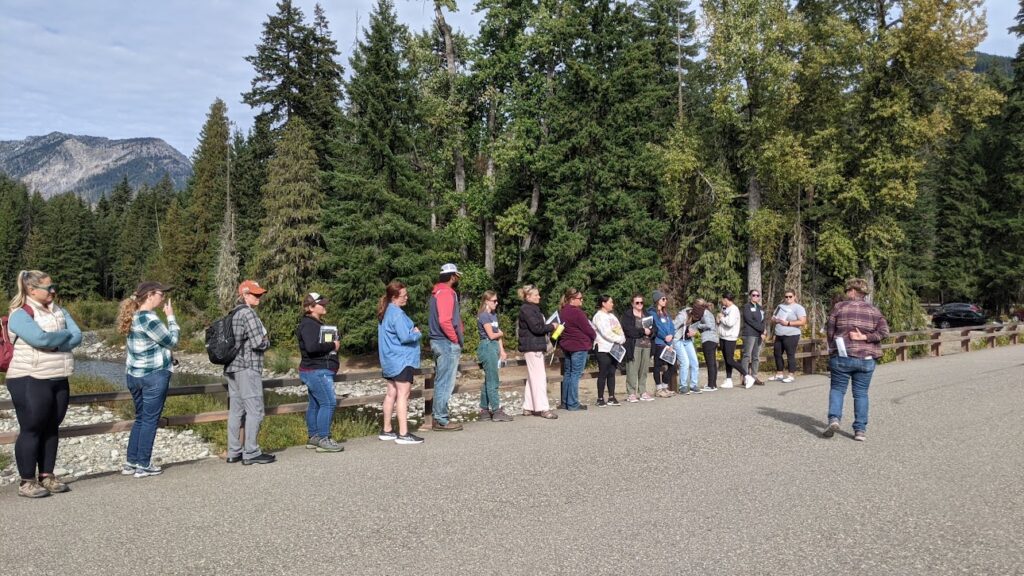Setting up a salmon tank in your classroom is intimidating, especially for teachers who have never done it before. The assembly process alone is daunting, not to mention the required care and maintenance that follow – and that’s before any consideration of integrating curriculum.
But what if an experienced educator, one with knowledge born of trial and error, were on hand to offer guidance and support? The experience would suddenly become much more manageable.

That’s exactly what happened to one elementary school teacher in the Mid-Columbia Fisheries Enhancement Group’s (MCFEG) Salmon Outside cohort. A teacher at Naches Valley Middle School visited Naches Valley Elementary to help a fellow cohort member set up their salmon tank. This surprised Yakima Basin Environmental Education Program (YBEEP) Director Tiffany Bishop, another program partner. Bishop supports dozens of tanks in Central Washington schools and doesn’t see many educators going between buildings to support tank installation.
“This cohort encourages collaboration with other educators in person and online,” says Debbie Cade, a Warden Middle School science teacher in the cohort. “Sharing how we already have or will incorporate salmon learning in our classrooms has been the perfect way to review as I prepare to bring salmon into my classroom for another year.”
Salmon Outside is a year-long program providing K-12 educators with resources and skills to create Meaningful Watershed Education Experiences (MWEEs) for students, along with STEM and Equity clock hours. Participants spend 35 hours at in-person and online workshops and completing asynchronous tasks. MCFEG provides content, resources and field experiences, while PEI is in a supporting role, taking care of registration, clock hours, tracking and some facilitation.
“This cohort encourages collaboration with other educators in person and online. Sharing how we already have or will incorporate salmon learning in our classrooms has been the perfect way to review as I prepare to bring salmon into my classroom for another year.”
– Debbie Cade, Warden Middle School Science Teacher
The program began this fall with visits to two salmon spawning locations and the Cle Elum dam, where work is underway to make the dam passable for salmon. During that trip, the cohort learned about notebooking strategies. They’ve since attended an online session and will have additional online and asynchronous sessions before returning for an in-person trip to several sites along the Columbia River.
“We’ll discuss the different careers available and the plight of salmon,” says Rivard. “We’re thinking about these nuanced pieces with respect to clean water and how it relates to the agriculture and energy sectors.” In March, a panel with Indigenous speakers from Yakama Nation fisheries will address these issues at La Salle High School. The panel may also feature perspectives from people involved in salmon legislation and habitat restoration efforts in Washington State.
In previous years, MCFEG has provided MWEEs for classrooms, setting up outdoor learning experiences and visiting students to deliver lessons. This year is different, says Rivard. “We’ve never done a full-on

cohort for an entire year, where the teachers write their own MWEE.”
By the program’s end, participating teachers will have developed and partially implemented a MWEE with their students. “The goal isn’t full implementation this year, it’s to have a fully written MWEE with all the pieces connected,” Rivard explains. “At a minimum, they will have tried parts of it with their students, but we know some of them will implement the whole thing.”
Cade sees benefits for both students and teachers in this approach. The instructional strategies and information can be used immediately in the classroom and directly benefit student learning, she says, and the program encourages teachers to take students outdoors. For educators, collaboration is a key asset. “My school is in a rural area, and I am the only grade-level science teacher,” Cade says. “Collaboration with other science teachers strengthens and encourages my teaching practices. Collaboration is constructive when it is with my peers of different subject areas, but most productive with like-minded science educators. I’ve found this at Salmon Outside!”
